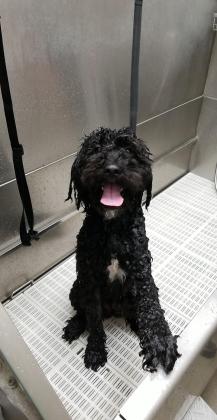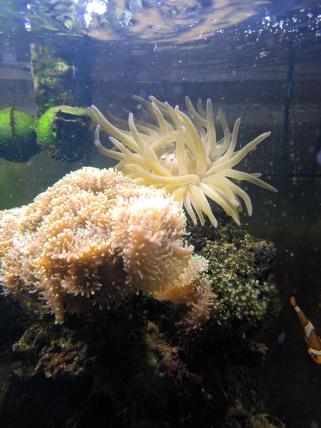Month: April 2020
A puzzle — of sorts.
by Sterre H.
Class of 2020
“Hello!” an enthusiastic volunteer greets you. Several weeks ago you signed up for a scavenger hunt in the park near your house. Fun but arduous was the description.
“Hi there,” you start, a bit nervous.
“You ready?”
“Um…”
“Okay, here you go!”
The volunteer thrusts a folded piece of paper at you and scurries away. You shrug and open it up. A map…
Several hours later you find the spot marked on the map. At its destination? A box. Inside it? A myriad of slightly dusty, but otherwise pristine puzzle pieces awaiting assembly.

Image Source: https://bookriot.com/2020/03/16/literary-puzzles/
Confused – but excited because you love puzzles – you rush home to start it. You gently dump out the pieces, organize them a bit, maybe find the corners or similar colors, and start the laboring, but inevitably thrilling, process of completing a challenging puzzle.
Yet, you rapidly become aware that something isn’t quite right. These puzzle pieces don’t seem to fit together … in fact, they are all from different puzzles! What are you supposed to do now? How will you ever be able to create a finished product?
You’re disappointed. Days go by with the puzzle pieces staring up at you, waiting, expectant, hopeful. Slowly, an idea starts to form. Maybe they don’t have to fit together perfectly. Maybe you can fix this. You work tirelessly, thinking, jotting down ideas, asking questions … this can work. You get the supplies, the equipment, the assistance, and get to work. Slowly – one puzzle piece at a time – you assemble something novel, creative, and inspiring. Something rooted in those puzzle pieces, yes, but also something completely different.
This is research. An arduous, confusing, exciting, challenging, thrilling, frustrating, disappointing, and inspiring journey to take your knowledge and the knowledge of those who came before you and create something entirely new. Maybe that something new isn’t the cure to cancer or a fully fledged product or even what you thought you wanted to create, but it is yours and it is important because of that.
For me, I never realized that research would be such a journey. I was a science-enthusiast, but my science was limited to being handed a detailed set of instructions and following them to the T. And don’t get me wrong, I loved this! I loved the precision: the confidence that if I was careful enough and paid close enough attention to what I was doing, it would all turn out correctly.
But, as I’m slowly learning, science is a much more creative process than that. In research, I’m no longer given a detailed set of instructions, the correct formulas to use, or the answer key to check my work. Now, I have to figure out for myself what articles to read, what topics to learn, and what paths to pursue. Maybe this scares you (it certainly did me), or maybe it excites you. Whatever the case, know that there will be help and assistance, tools and equipment, inspiration and creativity, and that you will learn, create, and discover some pretty cool things along the way.

Image Source: http://rupertmckelvie.com/portfolio/missing-pieces/
DOGS!
by Reese T.
Class of 2020
The absolute best part of Research is being able to develop your own project. I was able to to do a business project where I spent much of my time in a local pet store collecting data and got to see/play with a bunch of cute puppies like this Aussiedoodle for example:

Or, to keep on the doodle trend, this daisy dog (a Bejon frise, shitzu, and poodle mix) whose owners I got to talk to at the end of a data collection day:

Leo (the daisy dog) had just gotten a bath and was super excitable!
By doing this research project I went off campus to a local retailer to test different music tempos and volumes and how they can impact local retailers’ store performances. By doing this I was able to connect with a large number of people and truly experience local retail. People would come in to get something and just stay to chat with the owner of the store, or bring their dog which would play with everyone working, or even to come in for a bit of personal advice regarding their pets.
Although the project has been interesting, the highlight of it has been the data collection because of the interactions with the community and especially the dogs. There was a customer with a puppy labrador that came in everyday and got a bone to chew on. Over the time I was there I got to witness a relationship grow between the customer and store staff and I realized that this is what local business is about and that this is why I’m doing a project to preserve these businesses.
I also remember one day there was a customer who walked in asking to buy one of the rocks in the aquarium that Tom (the store owner) likes to keep. They then got into this whole conversation about the anemone (pictured below) that had suddenly started to move around in the aquarium. This type of owner to customer interaction is not common to see at a typical business, but usually only occurs at local retailers because of the individualized attention the staff can give each customer. Without the Minnetonka Research Program I likely would have never been able to have witnessed these interactions.

The thing that truly defines the Minnetonka Research program is the sheer number of experiences you can have. In my case it was networking and finding application for a lot of the content I have been learning in school for something that I’m actually interested in. And that’s great for me. Some of my peers have also had completely different experiences where they are doing something entirely new and stretching themselves so much. The program lets us all grow as students and actual people and allows us real responsibility. I have loved what this program has allowed me to learn and do and the experiences I have gained and can now carry with me. Plus, I got to play with dogs so I think that is an automatic win!